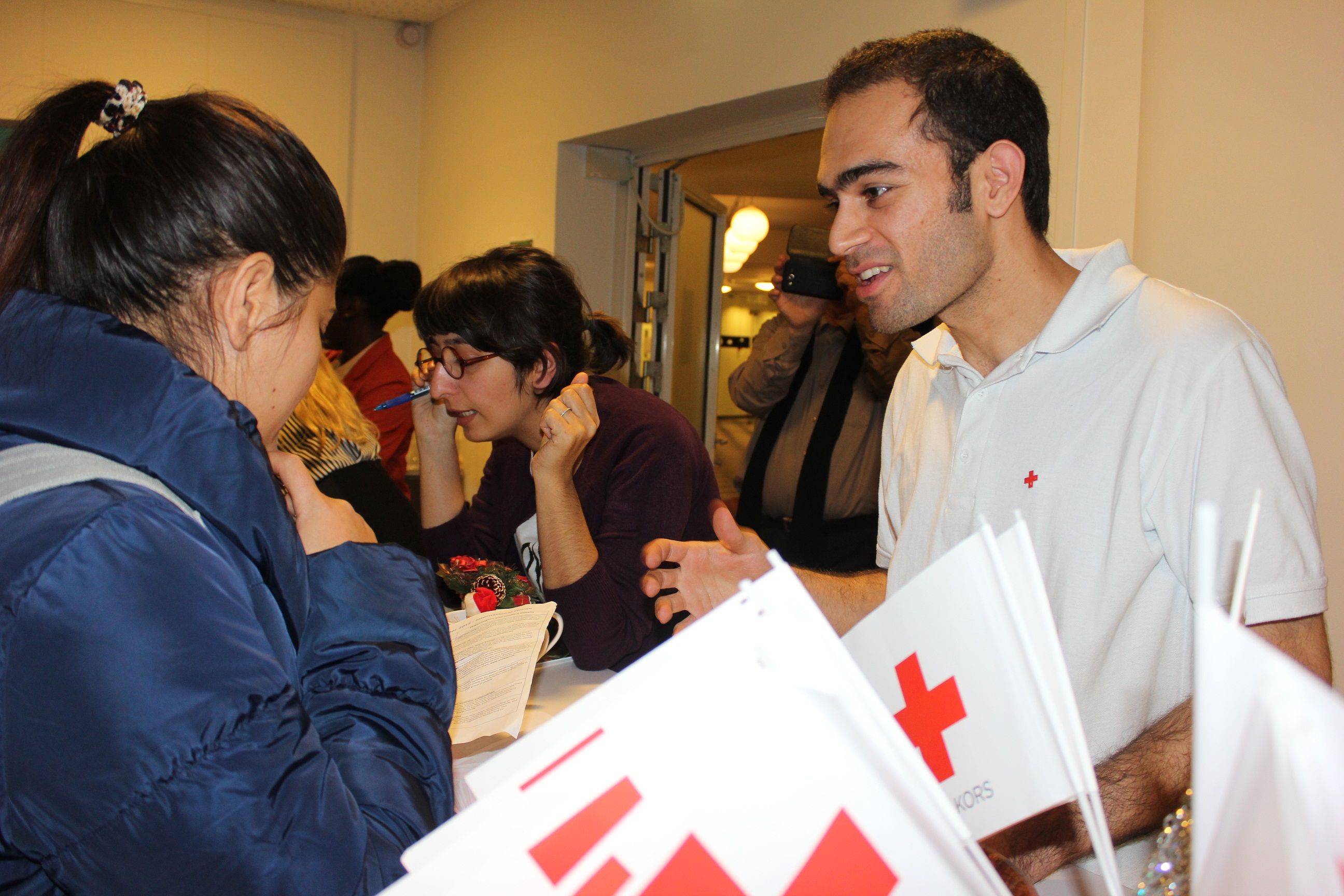International House Copenhagen provided the venue for the annual Volunteer Fair last week on Tuesday.
This initiative works to bridge the gap between internationals and locals, offering them the chance to help others and integrate into Danish society.
Around 300 people attended to hear about the possibilities in Denmark and to check out the opportunities offered by the 25 organisations present.
Viktor (right), Alwwin (South India) and Meghan (England) spoke about One Bowl Dinner, a non-profit community dinner kitchen that aims to establish equality. Their slogan is “Let us put the emphasis back into the relationships that surround food” and Viktor contends that while the project is primarily for the homeless, it is “ideal for people who need an entrance in the city, as here they can meet other newcomers while enjoying home-made food”. Those who attend pay what they think the dinner was worth.
The Floating City is a volunteer-driven project, that is part of the international social construction movement and working towards a sustainable society. “Volunteers at the Floating City are mostly international participants,” explained Sissel from Switzerland. “We gather every Saturday, where we construct and eat together. It’s more than a just volunteer project – it’s about helping our society transition into a more sustainable one.”
Cafe Retro is a volunteer café where you can apply to be a waiter or barista. They work with projects like REACT, a small-scale innovative NGO that wants to establish and develop a central educational institution in Masanga in central Sierra Leone. “Some 50 percent of our volunteers are internationals,” enthused Emil from Café Retro. “It’s a great place to meet people when you are new in town, and we don’t require any previous experience. It’s a great start-off if it’s your first job in a coffee shop.”
 Francesca and Elsine from Nightcafé for Women in Human Traffic, which is targeted at foreign women in street prostitution, were present. The café opens from 0-4 am, offering a space to escape for a little while from their life on the streets. They can either relax, eat something or talk to social workers. “It’s not only about helping with the set-up of the café, but socialising with the women who stop by and listening to their stories,” Francesca said. “You suddenly become aware of their situations, which might differ a lot from yours. That’s the most rewarding thing about it. And you give them more than just food – you give them a smile.”
Francesca and Elsine from Nightcafé for Women in Human Traffic, which is targeted at foreign women in street prostitution, were present. The café opens from 0-4 am, offering a space to escape for a little while from their life on the streets. They can either relax, eat something or talk to social workers. “It’s not only about helping with the set-up of the café, but socialising with the women who stop by and listening to their stories,” Francesca said. “You suddenly become aware of their situations, which might differ a lot from yours. That’s the most rewarding thing about it. And you give them more than just food – you give them a smile.”

“We want to expand our network, practise our English and meet people,” said Kriti DC, Kul Raj Sharma and Simika Sunuwar (all Nepal). “I have already signed up for Cafe Retro and Karneval,” revealed Sharma.
“We just arrived a month ago in Copenhagen on a two-year working visa program. We heard volunteering was a good starting point for finding a job afterwards, as well as practising our Danish and communicating with new people,” said Ali, Eissa and Aimin (all Iran).

“We need to improve our Danish. And so we decided to try volunteering and therefore support a good cause!” said Amalia and Ana-Lisa from Italy



















